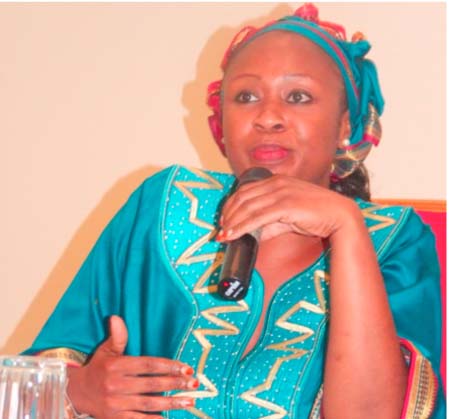
We
are ensuring that every child under age 18 is given the opportunity to develop,
says Gambia’s Justice Minister Mama Fatima Singhateh
Gambian
lawmakers Thursday passed a bill criminalizing child marriage in the country,
less than a month after President Yahya Jammeh announced an immediate ban on
the practice.
The
bill, presented by Gambia’s justice minister and attorney general, Mama Fatima
Singhateh, now awaits the president’s signature after which it will be
published in the National Gazette within 90 days before it becomes active.
“A
parent, guardian or any other adult who willfully contracts a marriage on
behalf of a child or causes a child to contract a marriage of forces commits an
offence and is liable on conviction to imprisonment not exceeding twenty
years,” the new law states.
The
law would give the same punishment to anyone who conspires to marrying off a
girl below the age of 18 or anyone who betroths a child to any person or makes
a child subject to a dowry transaction.
The
new law also has a punishment of up to 10 years for anyone who is aware of the
practice and “intentionally” fails to report it, leaving no option for a fine.
“Children
are not physically and psychologically prepared to be parents,” the Justice
Minister said.
“What
we are doing is to ensure that every child under the age of 18 is given the
opportunity to develop… Child marriage is depriving our children of their full
growth and of education.”
Deputy
Speaker of the National Assembly, Hon. Fatou Mbaye, in her comments on the
development, said: “Child marriage is a long-standing practice, but it does not
mean that it is correct.”
“Young
children are very vulnerable to all types of abuses – so we cannot let child
marriage continue… Children of today are in transit to be the leaders of
tomorrow.”
In
his remark on the issue, Majority Leader of the National Assembly, Fabakary
Tombong Jatta, said the government’s decision to ban child marriage sprang from
their desire to educate every Gambian child.
“For
one to finish secondary education, he or she has to be at least age 18, and
education is a fundamental right in the constitution. So there is a need for
government to criminalize child marriage,” he said.
Njundu
Drammeh, a leading Gambian child rights activist and executive director of the
Child Protection Alliance, said the law is a welcome development but added that
child marriage, given its severity in Gambian society, can only be ended by
making people abhor the practice.
“This
is very important because it will help us ensure the protection and security of
our children’s future,” he said following passage of the bill.
“But
law is not the only cure to the social problem… So we need to sensitize the
parents and communities and it is important that even children themselves know
about the effects of child marriage.”
On
July 6, President Jammeh announced a ban on child marriage and promised the
government would give a measure to lawmakers to complete the process before
July 22.
Child
marriage is one of the major health concerns of women in The Gambia and
according to a government health survey last year, about 16 per cent of women
age 20-49 were married by 15 and 41 per cent by the age of 18.
Barely
a month before President Jammeh made the announcement; first lady Zineb Jammeh
led a nationwide campaign to end child marriage in The Gambia as part of the
African Union agenda to protect girls across Africa.



